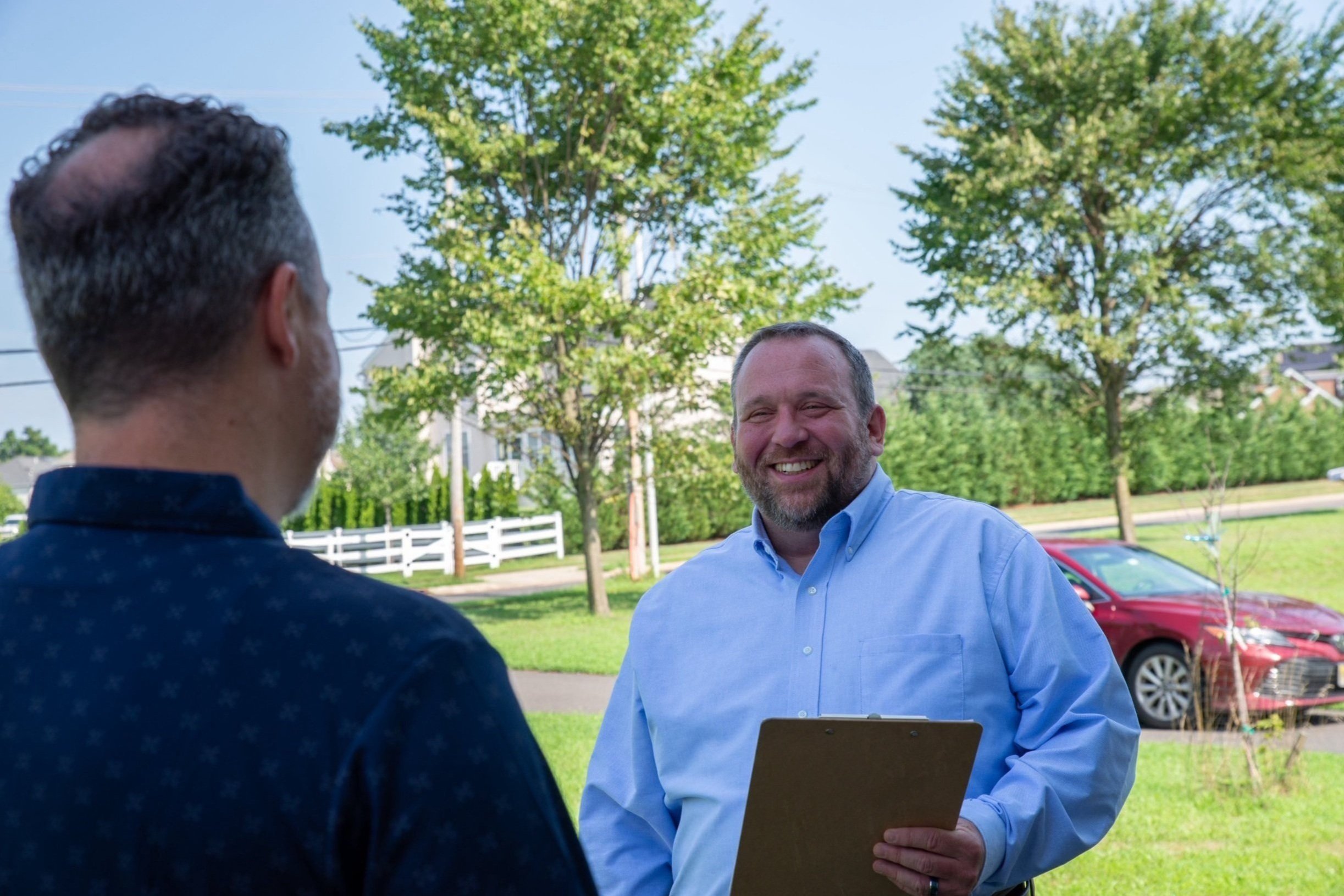John Hughes Is Your New Democratic Candidate
Photo courtesy of John Hughes.
Strangely, though not as vehemently, our election for Howell mayor has paralleled our current presidential election: we have a new Democratic candidate. John Hughes has officially taken over the position for candidacy and has replaced Matthew Filosa, the 24 year-old Howell Democrat who ran unopposed in the primaries. When asked how the transition has been, Hughes chuckled, “It’s been very hard,” further elaborating, “because I didn’t have the benefit of my name being on the primary ballot for everyone to be aware I’m running.” Will this affect his potential to be mayor? It’s hard to say. Matthew Filosa’s influence during the primary season was slim; having no real website, Facebook page, or other social media to display his inevitable candidacy. Other than his name being unknown on the primary ballot, Hughes has begun his run for mayor atypically: stuffing envelopes with letters to voters, holding a meet and greet, and having an active Facebook page.
His campaign is extremely policy focused. On the thirty minute phone call that I had with him, Hughes laid out major policy changes that he plans on enacting if sworn into mayoralty. One of the biggest issues Howell faces, that Hughes recognizes greatly, is affordable housing. “That’s an issue that brings up a lot of strong feelings, I think, to people,” argues Hughes. “People automatically in their brain think of Section 8, people that aren’t really contributing to society through work.” Hughes disagrees with this mindset, stating, “That’s not the reality of affordable housing. At least not in this area.” According to Affordable Homes New Jersey, the maximum income eligible for affordable housing on a household size of two people is eighty three thousand dollars. To Hughes, this number just shows how “overpriced and out of reality” we have become, urging those who are skeptical about low-income housing to adjust their lenses. We have a deficit in the amount of affordable housing that is required by the state, and Hughes contends that we are not ready for the conversation that needs to be had when the bill is inevitably due. Instead of looking at this topic as a dark cloud approaching, though, Hughes doubles down on optimism, goading for new ways to address the situation, “instead of just playing the ‘Oh my god we’re gonna have apartment complexes up and down everywhere’.”
Another issue that Hughes is passionate about is unprohibiting the marijuana business from being available to Howell farmers. “We have farms, we have families of farmers who, you know, they need the additional cash crops. We want them to stay as farmers in our town, but we’re prohibiting one of the best cash crops in the state right now? That makes no sense. And you know, you just, you don’t even have to look far to see the benefits to it.” The benefits include a usage of the municipal tax levy that can be applied to marijuana products and could help farmers earn useful money. The reason that this is so important to Hughes is because he believes it can offset the inevitable tax increases that pay for, for example, mandatory raises to government employees such as police officers. By giving farmers the opportunity to venture into additional cash crops, they will be able to maintain their properties and business in Howell despite the financial pressures of increasing taxes. Importantly so, since farmers are arguably the backbone industry of Howell, which is recognized by both Hughes and his opponent John Leggio.
Similarly to Leggio, Hughes’ credence comes from a desire to move away from the innate division that comes with party politics. Though a Democrat, Hughes briefs, “I don’t think any party has all the right ideas,” campaigning for someone who is willing to listen to all sides and come to a conclusion that is best for Howell first. Hughes recognizes that his campaign is not as strong in the Howell patriotism that comes with Leggios’ born and bred rhetoric, stating, “I wasn’t born here, I didn’t grow up here, I didn’t go to Howell High School; you know, that, that’s the other candidate.” He doesn’t find this to be a roadblock, though. He actually thinks it pushes his passion further, making clear that he has grown up in a town like Howell and has experienced what overdevelopment has done to it. “Overdevelopment everywhere,” he says, “McMansions popped up on tiny lots. I’ve seen what it did to that community. The woods that my friends and I used to go out in every weekend to mess around in the woods, ride dirt bikes, whatever, they are all now expensive homes. It’s gone. And that’s what’s going to happen if we continue down the same path that the town is right now.”
Unlike Leggio who has a solidified campaign mantra, ‘No Strings Attached’, Hughes has used the label of his candidacy to describe his ideas: new. As a lawyer, he wants to hold local officials accountable in an effort to create transparency in the town. As a Howell citizen, he wants to see our town thrive.
You can read more about Hughes’ campaign on his website, https://hughes4howell.com/.


